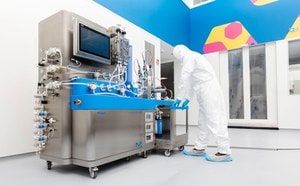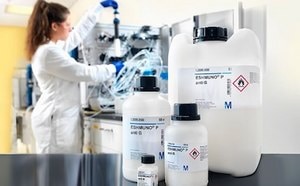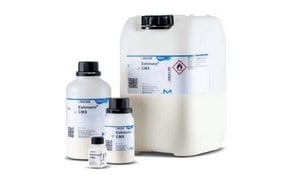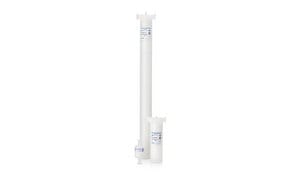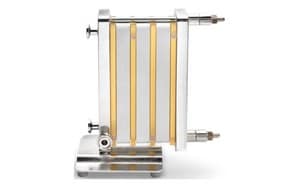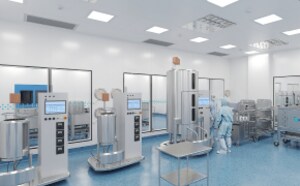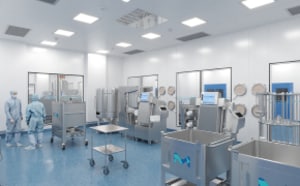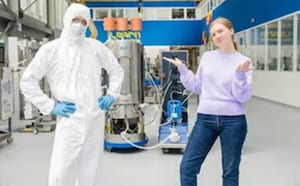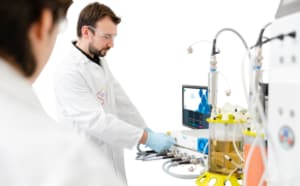Intensified and Continuous Downstream Processing
Gain operational efficiency and flexibility while reducing footprint and costs
Looking to increase your downstream process efficiency?
Transformation of the biomanufacturing workflow is being accelerated by the demand for new therapeutics combined with the need to reduce costs while ensuring operational flexibility and productivity.
Process intensification, closed, and continuous bioprocessing are foundational strategies for achieving these goals. They are widely and successfully deployed in the downstream suite to be more efficient, faster, smaller, less expensive, and sustainable.
To help biopharmaceutical manufacturers intensify, closing, digitally-enhance, or go fully continuous with their processes and gain new levels of operational efficiency and flexibility, there are multiple levers within the DSP suite.
Ultrafiltration
Use of single-pass tangential flow filtration (SPTFF) eliminates the need for hold tanks or a retentate loop, allowing flow-through operation and intensified downstream processing of monoclonal antibodies. Productivity and efficiency of the mAb DSP workflow can be further increased by coupling SPTFF with chromatography unit operations. SPTFF is also uniquely positioned to enable high-concentration formulations with improved product recovery during the final formulation step.
- Pellicon® SPTFF offers an unparalleled solution to reduce in-process volumes within downstream processing of drug products, reach concentrations and yields unachievable with batch TFF due to working volume limits, and enable connected and continuous processes.
- Pellicon® Cassettes consistently and reliably deliver purity assurance at every stage and scale throughout the life of a drug product.
- Pellicon® Capsules for the filtration of feedstreams that require single-use capabilities, including enhanced ease-of-use, process flexibility, product turnaround, and reduced operator exposure.
Related Categories
Single-use and multi-use chromatography systems are critical for the separation of your valuable molecules.
Affinity chromatography is often used during the capture phase to isolate the target molecule and reduce process volume.
Ion exchange (IEX) chromatography separates biomolecules based on difference in charge between the target molecule and chromatography resin.
Optimize downstream purification using membrane chromatography for capture and polishing. Natrix membranes boost economics and facility efficiency.
Elevate Filtration Precision: Our tangential flow products ensure purity for mAbs, vaccines, and more, scaling from single-use to multi-use.
Related Resources
- What is Multi Column Chromatography?
In this article, we will discuss one of the methods used to intensify the capture chromatography process: multi column chromatography (MCC).
- Mobius® Multi Column Capture System
The Mobius® Multi Column Capture system is designed as a fully automated, single-use solution to operate continuous closed capture chromatography.
- App Note: Multi Column Capture
Results from the multi-column capture (MCC) system implementation as part of a fully integrated downstream continuous manufacturing platform are reported here.
- Intensified Polishing Using Single-Pass Tangential Flow Filtration (SPTFF) with Anion Exchange Chromatography
In this app note, SPTFF preconcentration is used to intensify the anion exchange (AEX) polishing step in monoclonal antibody (mAb) processing for improved impurity removal and column productivity.
Related Webinars
Improve your process efficiency and reduce costs
Related Videos
BioContinuum™ Platform: Your enabler of the biomanufacturing facility of the future!
To continue reading please sign in or create an account.
Don't Have An Account?